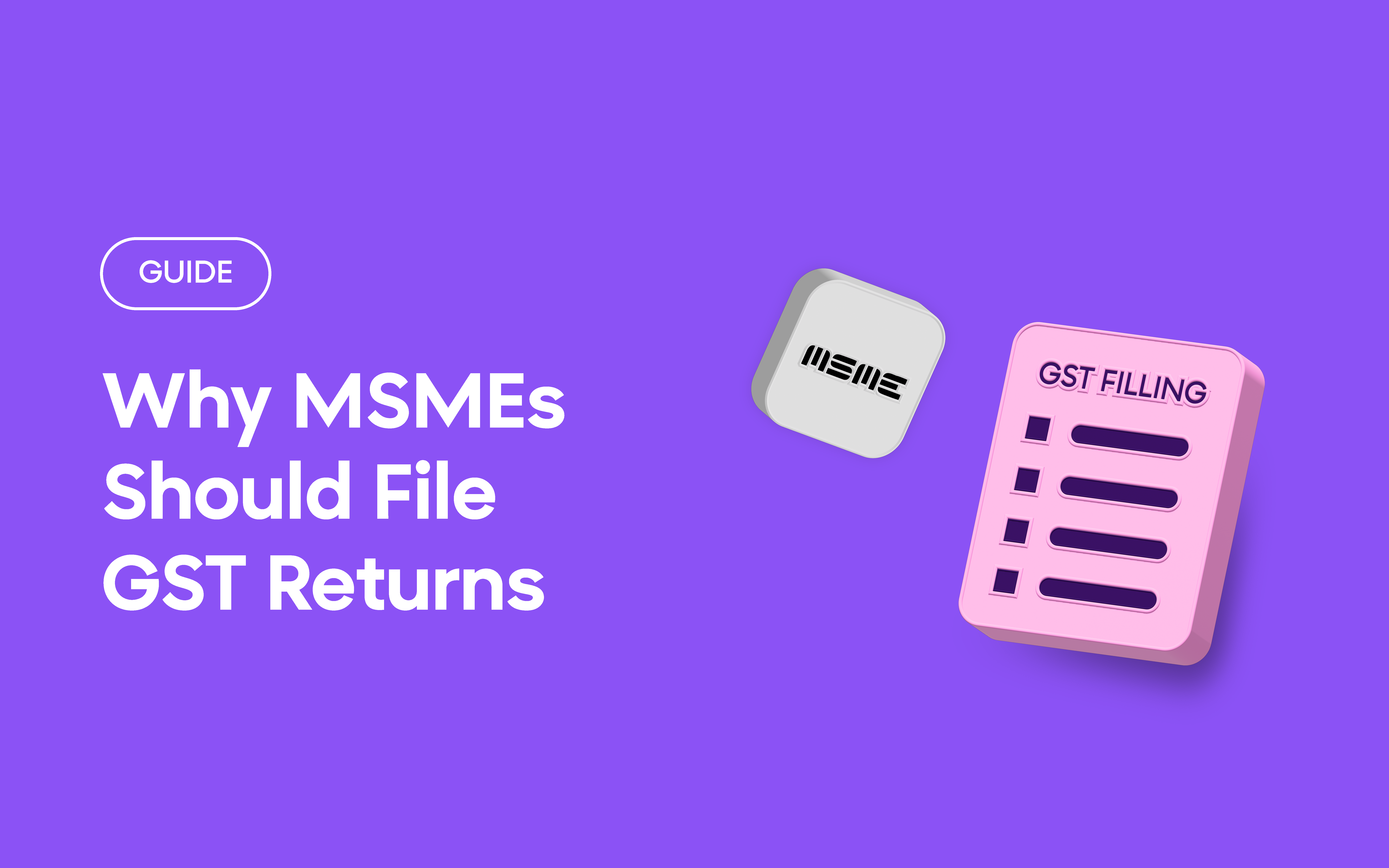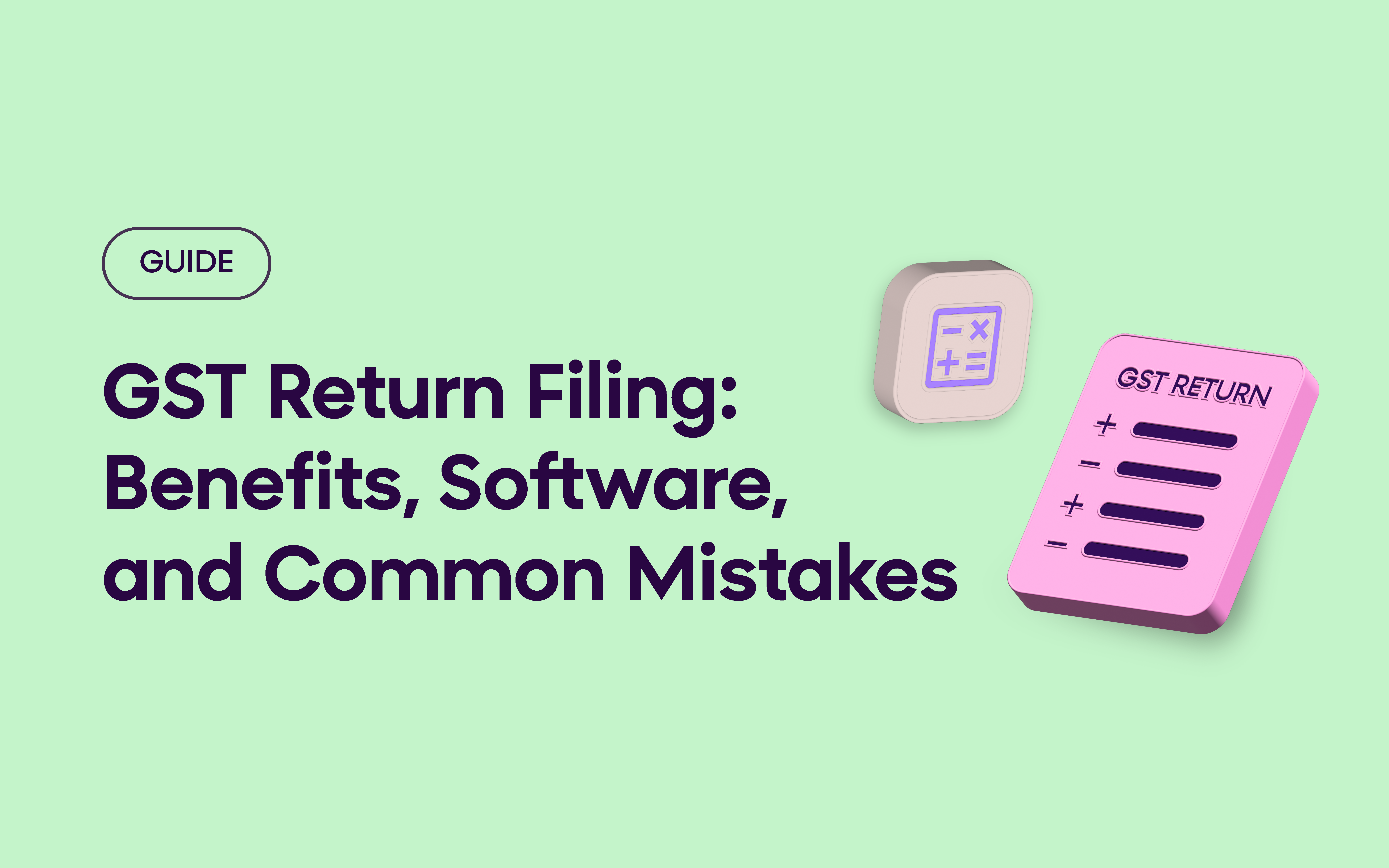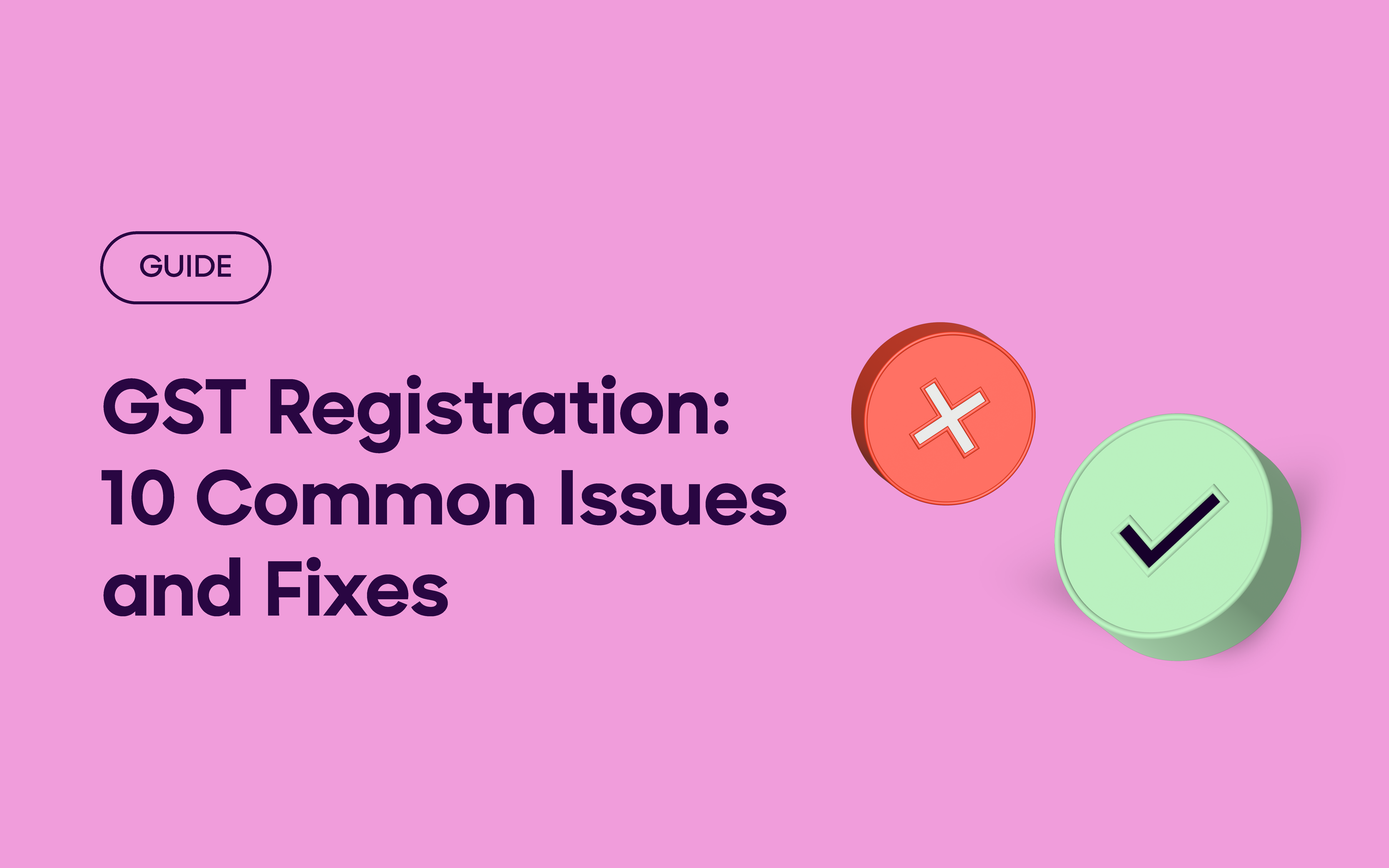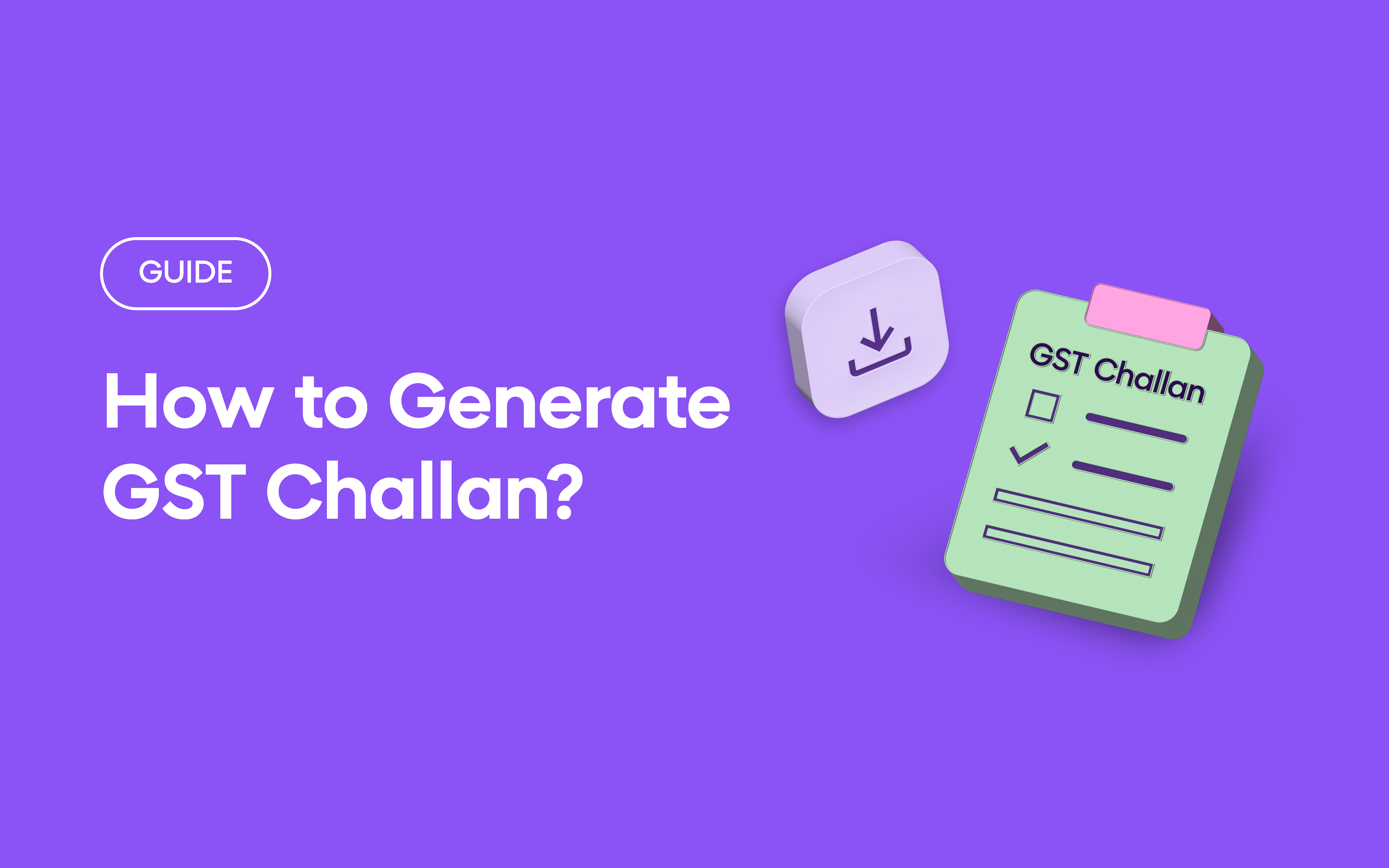Goods and Services Tax (GST) has changed the way businesses handle taxation in India. For Micro, Small, and Medium Enterprises (MSMEs), staying compliant with GST rules isn’t just a legal requirement—it’s a day-to-day business practice.
GST returns are an important part of this compliance. Yet, many MSMEs either delay the filing of GST returns or struggle to understand the importance of doing it on time. This blog explains why filing GST returns matters, and how it can benefit growing businesses in the long run.
What Are GST Returns?
A GST return is a document that GST-registered businesses must file to report sales, purchases, output tax (on sales), and input tax (on purchases).
The most common returns for regular MSMEs are:
- GSTR-1 – for reporting outward supplies (sales)
- GSTR-3B – a summary return for overall tax liability and input tax credit
Businesses with a turnover up to ₹5 crore can opt for the QRMP scheme, allowing quarterly filing with monthly tax payments.
Other returns include:
- GSTR-4 – for composition scheme taxpayers
- GSTR-9 – an annual return for regular taxpayers above the prescribed turnover threshold
Filing frequency—monthly or quarterly—depends on your business’s turnover. If you’re registered under GST, filing is mandatory.
Why MSMEs Should File GST Returns on Time
1. It’s a Legal Requirement
Once your business crosses the threshold limit for GST registration (₹40 lakh for goods, ₹20 lakh for services), filing of GST returns becomes mandatory.
Not filing returns can attract penalties and notices. Even if your business made no sales in a month, you still need to file a ‘nil return’. Delays or failures in filing may lead to late fees of ₹50 per day (₹20 in case of nil returns), along with interest on unpaid taxes.
The late fee is capped at a maximum of ₹5,000 per return under GST.
2. You Need It to Claim Input Tax Credit (ITC)
One of the biggest advantages of GST is that you can claim credit for the tax paid on purchases. This is known as Input Tax Credit.
But you can only claim Input Tax Credit (ITC) if you’ve filed your GSTR-3B on time, and your supplier has filed their GSTR-1. Filing regularly ensures your credit is not blocked, which can impact your cash flow.
For example, if you’ve purchased raw materials and paid GST on them, but don’t file your return, you can’t claim credit on that amount. Over time, this becomes a loss.
3. It Makes Business Operations Smoother
Timely return filing shows that your business is consistent and compliant. This builds confidence among suppliers, buyers, and partners. In some industries, vendors may prefer working only with GST-compliant businesses to ensure their own input tax credit isn’t affected.
Also, when you keep filing returns regularly, you automatically maintain clean records. This helps during audits or any regulatory checks and reduces last-minute stress.
5. Avoid Unwanted Penalties and Notices
Delaying or missing GST return deadlines can result in multiple issues:
- Late fees
- Interest on unpaid tax
- Blocking of E-Waybill generation, which affects logistics
- Notices from the GST department, which can take time and resources to resolve
Regular filing helps you stay off the radar for such complications. It also ensures you’re not burdened by cumulative penalties.
Common GST Mistakes MSMEs Make
Many MSMEs face challenges while managing the filing of GST returns. Some common issues include:
- Missing deadlines – due to lack of reminders or last-minute rush.
- Incorrect invoice details – mismatches in GSTIN, amounts, or tax rates.
- Not reconciling with purchase data – which leads to errors in ITC claims.
- Not updating business info – like address, bank details, or email, which can cause communication gaps.
These can be avoided with simple steps like regular bookkeeping, proper invoicing, and timely reconciliation. You can also explore professional GST return filing services like Optotax to avoid these pitfalls.
How to Make GST Return Filing Easier
Filing GST returns doesn’t have to be a complex task. Here are a few ways MSMEs can make the process smoother:
1. Use Accounting Software
Digital tools can automate invoice generation, calculate tax, and remind you of filing deadlines. Some tools even integrate directly with the GST portal.
2. Hire a Tax Professional
If you’re unsure about rules or handling returns yourself, consider working with a tax consultant or GST return filing services. They’ll help ensure accuracy and save time.
3. Keep Digital Records
Maintain organized digital copies of sales and purchase invoices. This makes data entry easier and helps in quick reconciliation.
4. File Returns Even When There’s No Business
Don’t skip months where you had no sales or purchases. File a nil return to avoid penalties and stay compliant.
Conclusion
For eligible MSMEs, the filing of GST returns is more than just a compliance requirement—it’s a smart business move. It enables tax credit claims, builds credibility, improves access to finance, and keeps your business prepared for future opportunities.
Yes, the process can feel overwhelming at times. But with the right tools and a bit of consistency, it becomes manageable—and even rewarding.
Simplifying financial tasks and staying on top of compliance can make a big difference in how smoothly your business runs and grows.
That’s where Optotax comes in.
With a fast, simple, and 100% free platform, Optotax makes it easier than ever for MSMEs and tax professionals to file GSTR-1, GSTR-3B, and GSTR-9—accurately and on time.
From auto-populated returns to intelligent validations and real-time reconciliation, Optotax takes the stress out of GST compliance so you can focus on growing your business.





